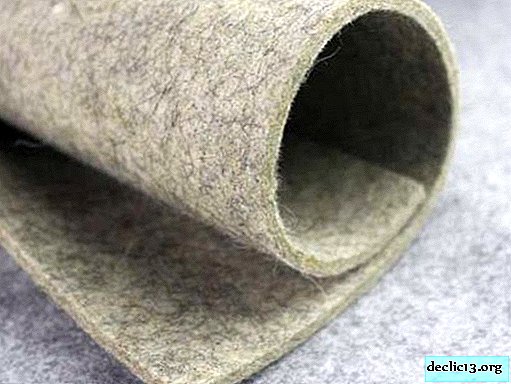Symptoms of H1N1 flu in humans

A modern person cures a cold in a few days. Viral flu diseases of the last strains are treated much more slowly and harder. They are extremely dangerous and often cause serious complications. This also applies to the human H1N1 virus. To date, doctors have not been able to create a universal medicine that effectively treats swine flu.
During the conversation, you will learn what swine flu is, symptoms in people, methods of treatment and prevention of adults and children.
The H1N1 virus infects the respiratory tract and is transmitted by airborne droplets. The incubation period of the infection is 4 days.
Infections are prone to humans and animals, most of all pigs. In the mid-twentieth century, the virus was transmitted from animals to humans extremely rarely. At the end of the 20th century, the swine flu virus began to interact with human and bird flu. As a result, another strain appeared, which was designated H1N1.
The first symptoms of the disease in humans have been reported in North America. In 2009, doctors discovered a virus in a Mexican child aged 6 months. After this, similar cases began to appear in all parts of the continent. Now the swine flu virus is easily transmitted between people, since the human body does not have immunity to this strain, which significantly increases the likelihood of total spread and epidemics.
According to experts, the H1N1 strain is a descendant of the Spaniard, who killed 20 million people at the beginning of the past century.
Symptoms
- Sudden and rapid increase in temperature to 40 degrees. Often accompanied by severe chills, weakness and general weakness.
- Pain in the muscles and joints. Headache localized in the area of the eyes and forehead.
- At the initial stage, a dry cough in the form of constant attacks, subsequently replaced by a cough, with poorly separated sputum.
- Often accompanied by a pronounced runny nose and severe pain in the throat.
- Decreased appetite. Nausea with vomiting and diarrhea.
- Shortness of breath and severe chest pain.
Complications
- Pneumonia.
- Cardiovascular and respiratory failure.
- Damage to the nervous system.
- The development of concomitant diseases.
The disease resembles a common flu and is often characterized by a mild clinical course. In children, pregnant women and the elderly, the disease is severe.
Swine Flu Treatment
Practice shows that recovery requires complex therapy that acts directly on the causative agent of the infection.
I propose to consider drugs and antibiotics to combat swine flu. I will present the material in the form of a systematic list in order to increase the level of assimilation of information.
- Oseltamivir. Tablets should be taken during the first five days from the moment of illness after 12 hours.
- Interferons. They increase the body's resistance to the effects of the pathogen, which contributes to the destruction of the virus. The duration of treatment with interferons is ten days. I note that interferons can be taken pregnant after 14 weeks.
- Arbidol. This medication is focused on the fight against viruses. To achieve the maximum effect, apply at the initial stage of the disease.
- Kagocel. The medicine stimulates the production of interferon. Use is recommended for a mild form of the disease, in the case of a severe course, it is ineffective.
- Ibuprofen. Antipyretic comes to the rescue at high temperature. However, other non-steroidal anti-inflammatory drugs are also suitable for this purpose.
- Vitamin Complexes. Do not affect viral particles, but increase immunity and improve metabolism.
- Antibacterial drugs. Appointed in case of accession of additional bacterial flora. In all other cases, meaningless.
Swine flu is a respiratory infection with its own transmission routes and an individual infection mechanism. Intoxication symptoms dominate the clinical picture. Antiviral drugs and antibiotics are used to treat the disease. Prevention is of great importance, especially with a weakened immune system, since in this case the disease is extremely difficult.
Can H1N1 flu be treated at home?
I think you understand perfectly well that it is only necessary to fight swine flu in a hospital. However, there are those interested in the question of whether H1N1 flu can be treated at home.
According to statistics, 0.5% of the country's population is infected with infectious ailments. Influenza patients account for 0.05% of this number. A thorough analysis of this small group of people showed that swine flu occurs in one out of five patients.
If you become ill with this type of flu, consult a healthcare professional immediately for help. Do not even try to treat yourself. This is not a runny nose.
- Swine flu treatment is always controlled by doctors. It is possible that at the final stage you will be allowed to continue treatment at home. True, you have to follow strict rules.
- After the discharge approved by the doctor, you must adhere to bed rest, take medicine regularly and in accordance with the doctor’s instructions, and refuse to walk.
- Increased attention is recommended to give hygiene.
In general, if symptoms of this scourge appear, go to the clinic. Only the doctor will diagnose and select the medicine. There is only one conclusion - hospitalization and no self-medication.
Are there folk remedies for swine flu?
As you already understood, it will not be possible to cope with the disease on your own.
Doctors warn that the fight against H1N1 flu should only be done in a hospital setting using antiviral drugs and antibiotics.
- The results of tests conducted by scientists showed that antioxidant-rich foods, including red wine, blueberries, cranberries and pomegranates, help treat swine flu.
- In order for the body to counteract the disease, it is necessary to adhere to a diet based on plant foods and take vitamins.
- Refusing cigarettes, observing the wakefulness and sleep regimen, proper hygiene and the absence of stressful situations will help treat the disease.
Real folk remedies, which are prepared from various oils, herbs and decoctions, have not yet been created. Surely, this is due to the fact that the disease itself is young and all efforts are aimed at studying it.
Prevention: how not to get the swine flu
The most effective preventive technique for swine flu is vaccination. But, not everyone can timely receive an injection of vaccination. In this case, generally accepted virus protection rules will help.
- In an epidemic, it is necessary to wear a gauze bandage, especially if you are constantly in contact with people. It is recommended to wear a stretched and well-ironed bandage. This protective agent lasts for several hours, after which it needs to be changed.
- Within the unfavorable period, if possible, refuse to visit crowded places. The list of dangerous places in which the probability of infection is high is presented by public transport, shops, offices, shopping centers, museums, theaters.
- It is recommended to refuse contact with a person with pronounced symptoms of a respiratory infection.
- Highly effective prophylactic - regular wet cleaning. At the first convenient moment, wash your hands with antibacterial soap.
- Eat properly, get enough sleep, and exercise. Take vitamins.
- Remember, the causative agent of swine flu is not friendly with high fever. High-quality heat treatment leads to the death of a dangerous virus.
- Do not contact homeless animals, as the virus can be transmitted from them.
I hope in this article on swine flu you learned something new, interesting and informative. I want you to never encounter this problem and always feel great!

















